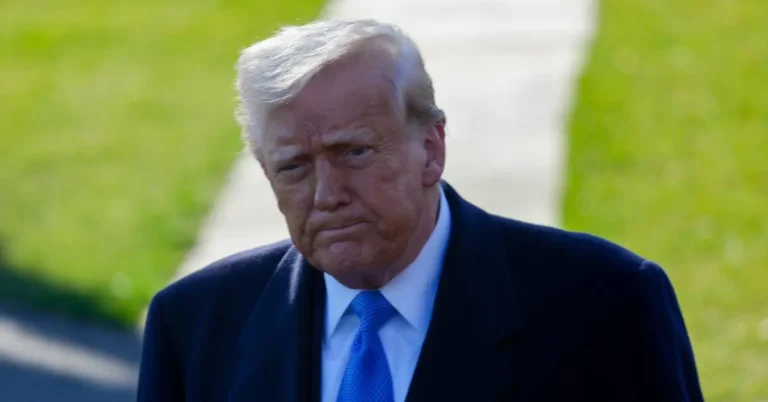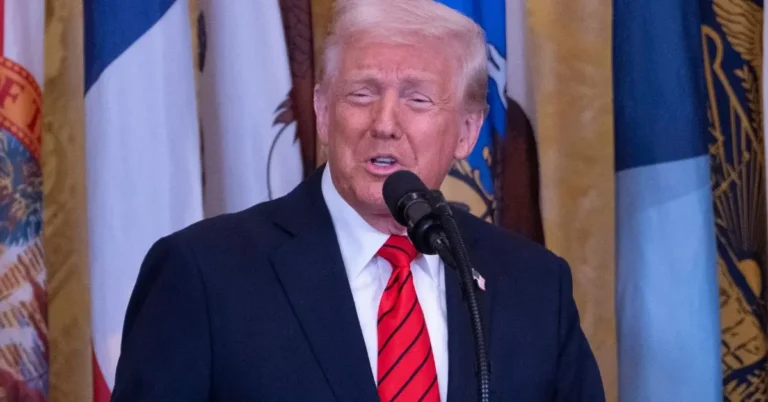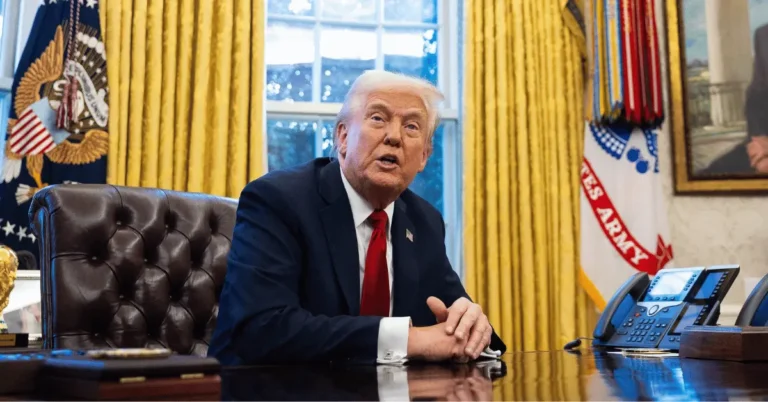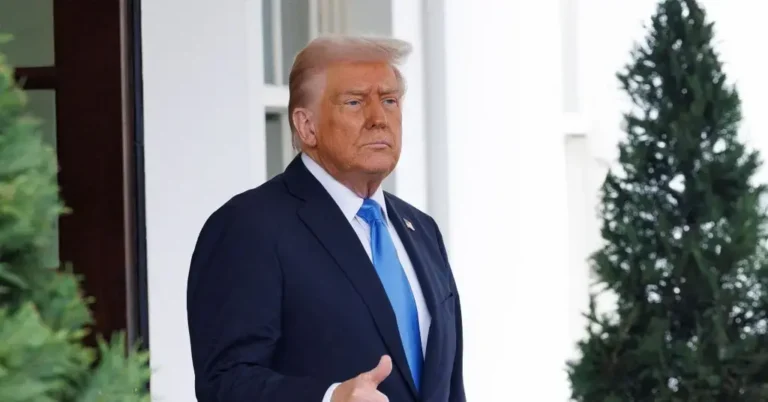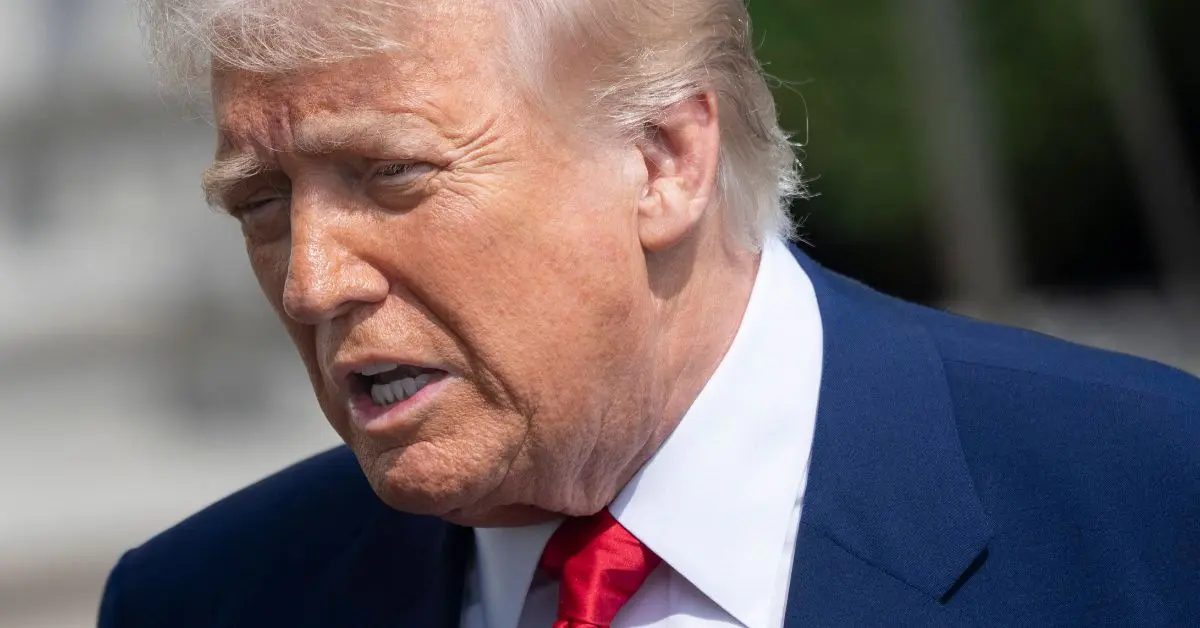
cover 24
Donald Trump is battling dementia in his second term as president — at least according to psychotherapist and author Dr. John Gartner.
Dr. Gartner pointed to several troubling signs, including Trump’s frequent inability to “even finish a sentence,” as evidence of cognitive decline.
After previously asserting that “there is absolutely no doubt” Donald Trump has dementia, Dr. John Gartner elaborated on his diagnosis in a recent interview with MindSite News.
“When we’re diagnosing dementia, what we need to see is a deterioration from someone’s own baseline of functioning,” he explained. “What a lot of people don’t realize is that back in the 1980s, Donald Trump was actually quite articulate. He spoke in polished paragraphs. Now, he struggles to even finish a sentence.”
Dr. Gartner continued, “His thoughts used to be logical and connected. Now, they’re all over the place — he rambles, confabulates, and jumps from Venezuelans and mental hospitals to sharks, batteries, and the ‘late, great Hannibal Lecter’ from Silence of the Lambs. It’s incoherent.”
Dr. Gartner continued: “And why is he talking about Hannibal Lecter—a fictional character who wasn’t ‘great’; he was a serial killer. These are strange and random associations that seem to make sense only in Trump’s mind. What we’re seeing is an accelerating rate of cognitive decline.”
He also argued that Trump is “losing his capacity for coherent speech,” pointing to “dozens and dozens” of examples of phonemic paraphasias—errors where someone substitutes incorrect sounds for parts of words, which Gartner says is a hallmark of brain damage and dementia.
“Trump might say something like ‘mishiz’ instead of missiles, or ‘Chrishus’ instead of Christmas, because he can’t complete the word,” he explained. “We also see semantic paraphasias, where he uses the wrong word entirely—like saying ‘the oranges of the situation’ instead of ‘the origins.’”
“This isn’t within the range of normal aging,” added the Rocket Man: Nuclear Madness and the Mind of Donald Trump author. “His basic ability to use language is breaking down.”
Dr. Gartner also accused the political establishment of “sanewashing” Trump—downplaying or ignoring his mental decline—and claimed that the former president has “really populated the whole government with people who are more or less equally sick.”
White House representatives have not yet responded to requests for comment.
Other mental health professionals, as well as a recent computer analysis, have echoed concerns about the 78-year-old’s cognitive state. They’ve pointed to Trump’s increasingly rambling, disjointed rally speeches as evidence of deeper issues.
The analysis found that Trump’s speeches at rallies are now nearly twice as long as those delivered during his 2016 campaign, with more frequent tangents, odd references, and nonsensical phrasing—fueling speculation that his cognitive health is deteriorating rapidly.
Trump has also increasingly leaned into extreme, all-or-nothing language—using words like “always” and “never” far more often than he did eight years ago. Some experts believe this shift could reflect cognitive aging and a more rigid thinking style.
Even former White House communications director Anthony Scaramucci has publicly commented on Trump’s mental decline, saying the former president has “lost the ability to put powerful sentences together.”
Despite mounting concerns over his behavior—and mental fitness—Trump has floated the idea of running for a third term, raising constitutional questions and stirring fresh controversy. The prospect hinges on how one interprets the 22nd Amendment and the unwavering loyalty of his Vice President, J.D. Vance.
The full text of the 22nd Amendment states:
“No person shall be elected to the office of the President more than twice, and no person who has held the office of President, or acted as President, for more than two years of a term to which some other person was elected President shall be elected to the office of the President more than once.”
Legal scholars are divided on whether “elected” is the definitive word that bars a third term—or if Trump, under extraordinary circumstances, could sidestep the spirit of the law without violating its letter.
If Vance were to win the presidency in 2028 with Trump as his running mate, he could theoretically resign after being sworn in—allowing Trump to return to the Oval Office through the line of succession.
